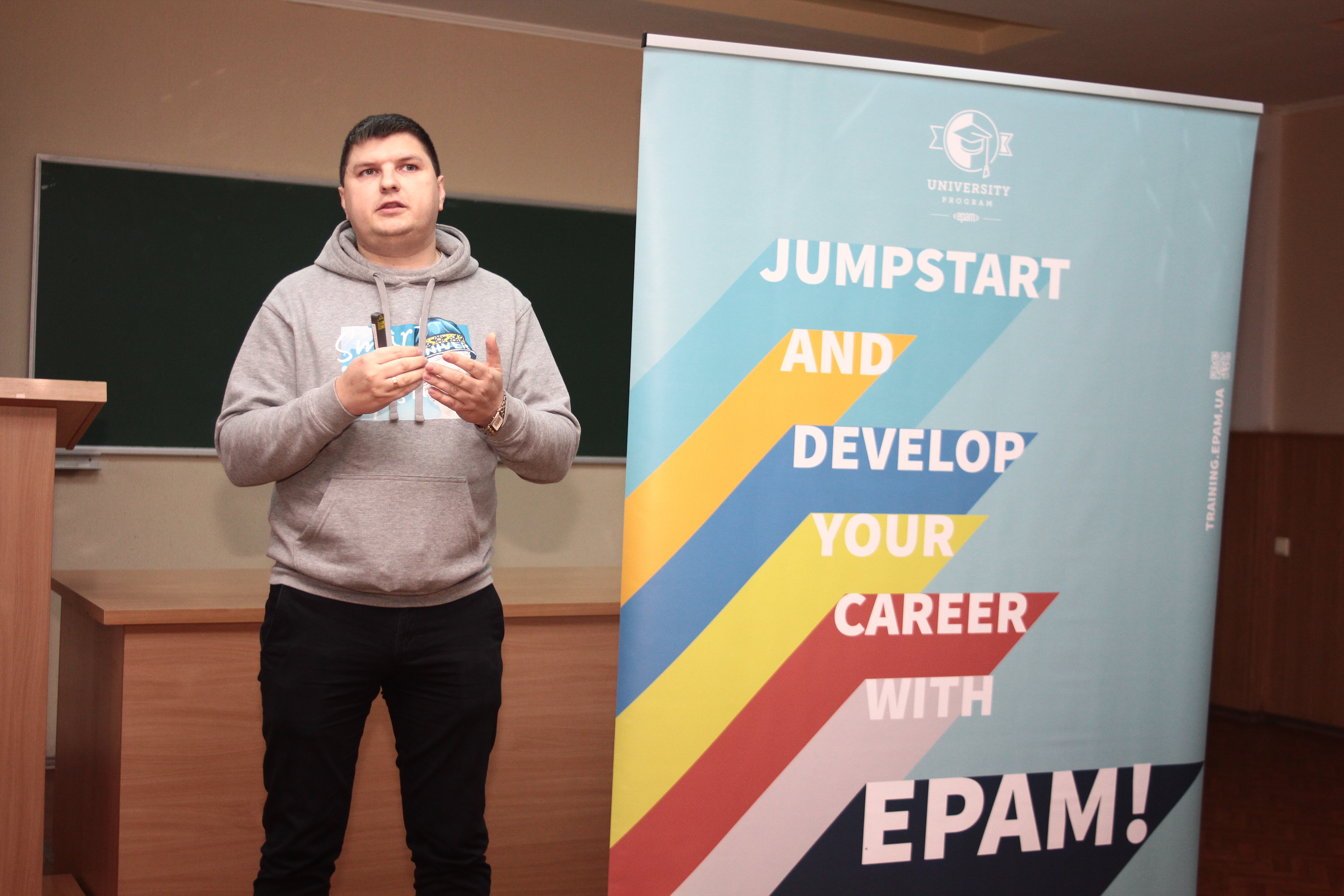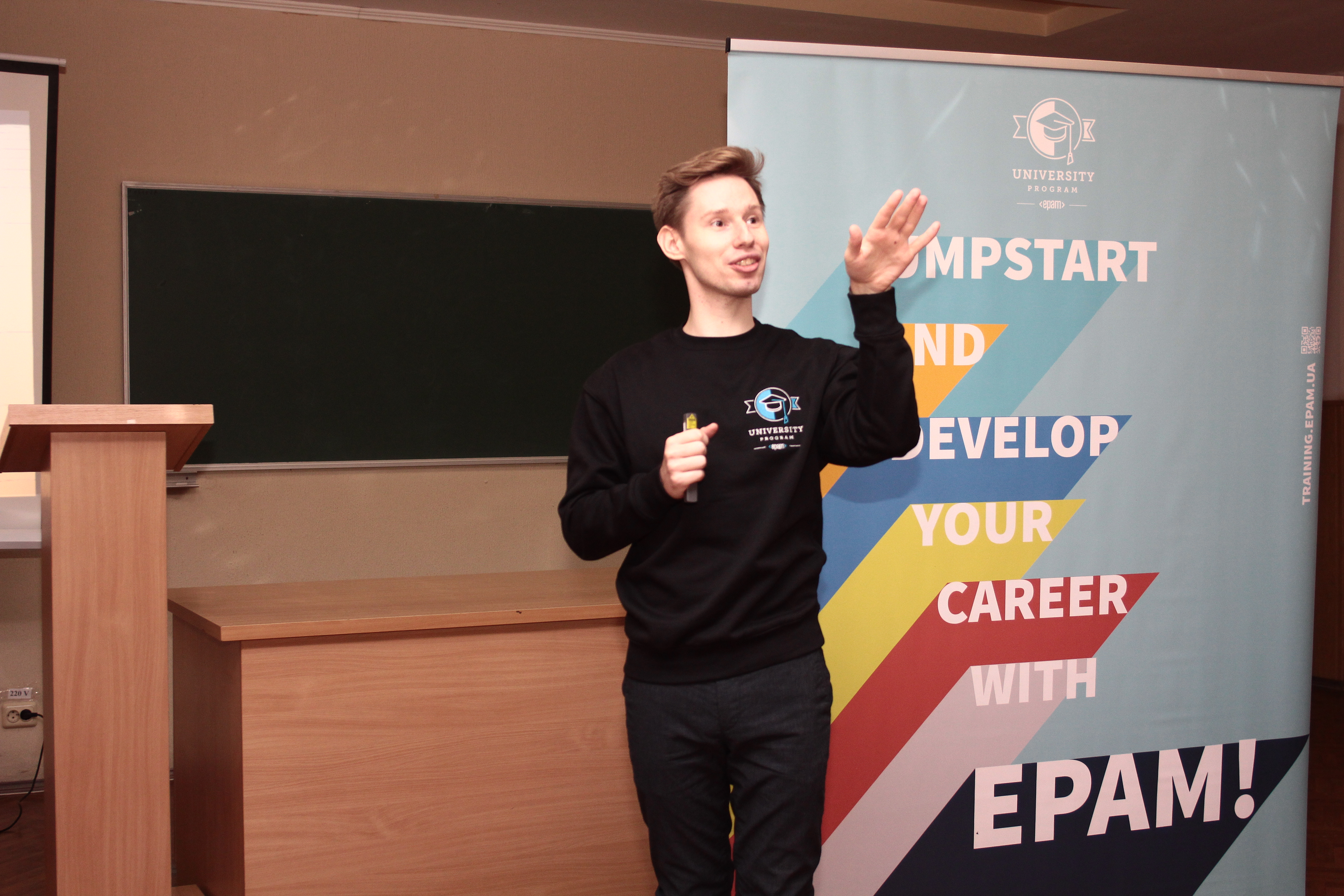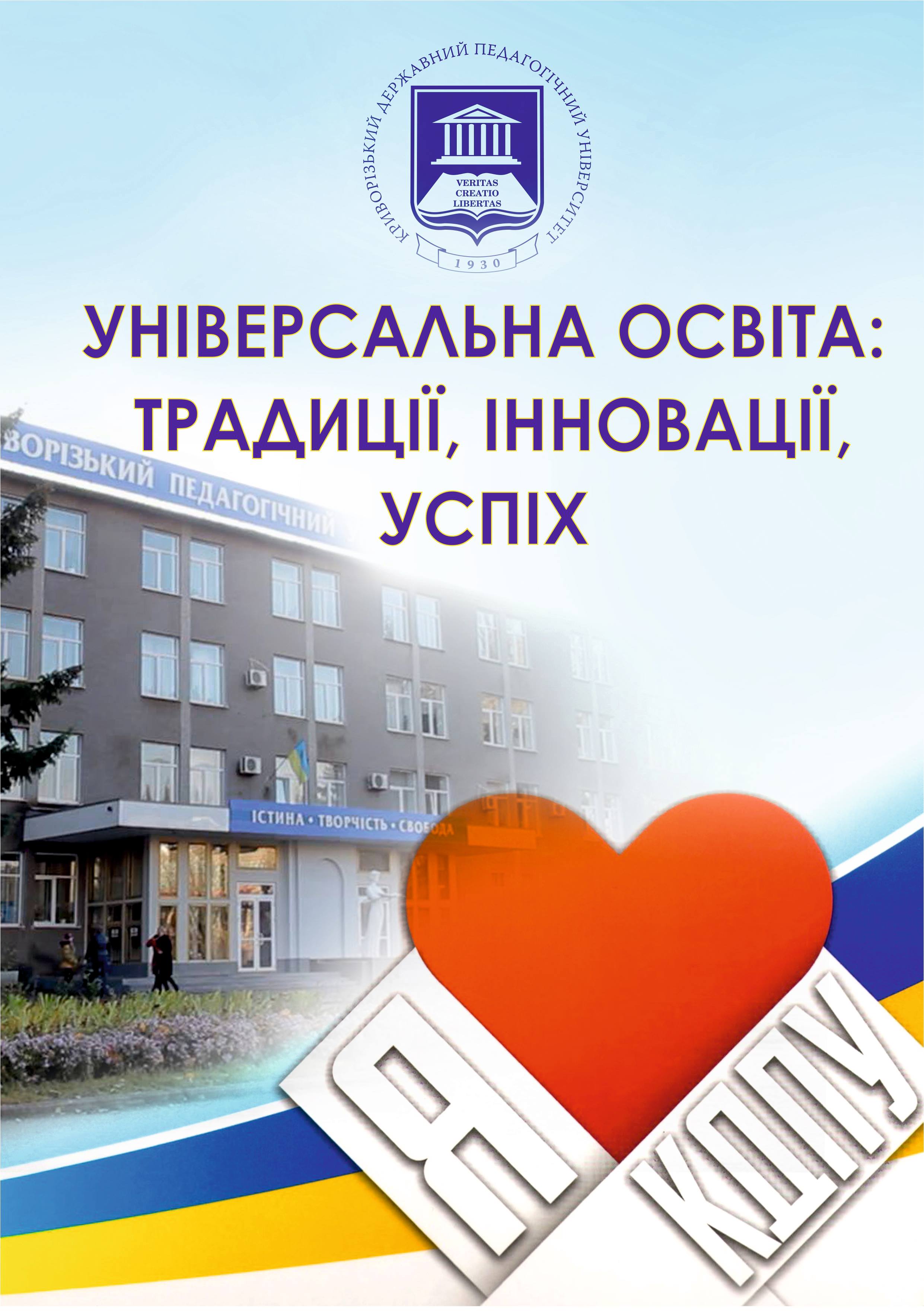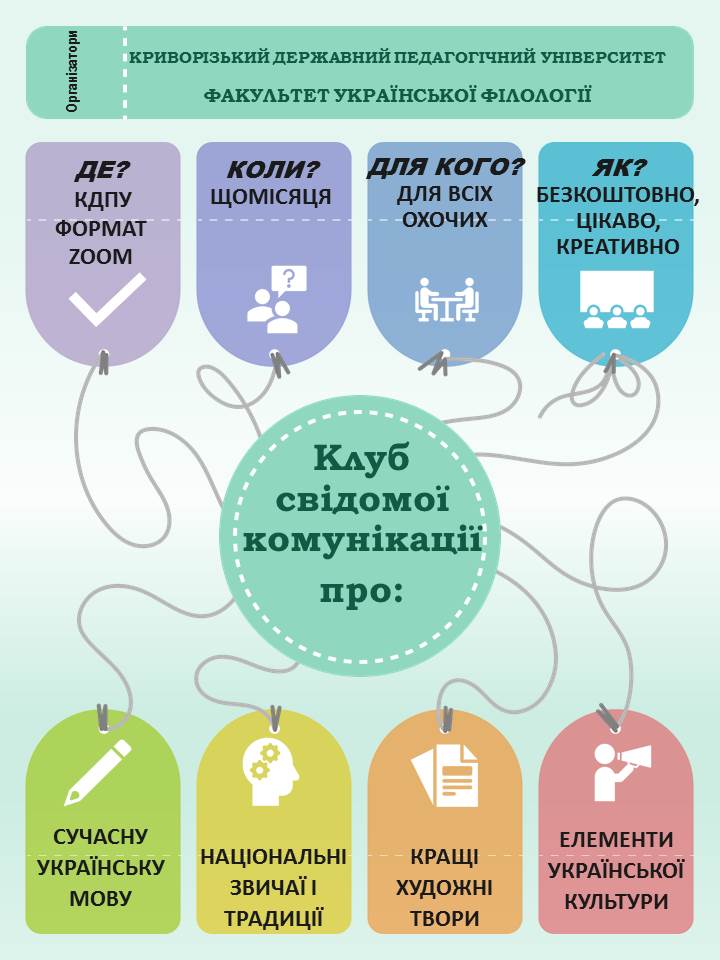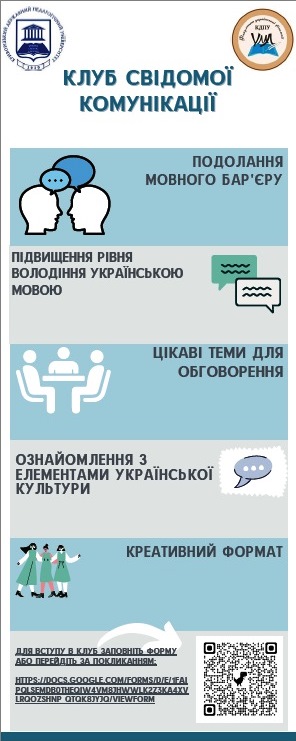На початку лютого відбулася зустріч доцента кафедри інформатики та прикладної математики КДПУ Шокалюк Світлани Вікторівни та Фадєєвої Лілії Олександрівни (аспіранта кафедри ІПМ) зі школярами 11 класу ліцеїв міста Кривий Ріг. Захід провено в форматі профорієнтаційної роботи, на ньому здобувачів освіти ознайомили зі спеціальністю 014.09 Середня освіта (Інформатика. Програмування). В рамках заняття їм було запропоновано створити власну модель машинного навчання за допомогою ресурсу Teachable Machine. Створені моделі допомагали учням розрізняти рукописні записи різних людей.

- Автор: Кафедра інформатики та прикладної математики
- Перегляди: 588
В Криворізькому державному педагогічному університеті відбулося урочисте вручення магістерських дипломів студентам спеціальності "Середня освіта (Інформатика. Програмування)".
З вітальним словом до аудиторії звернувся ректор університету, Ярослав Владиславович Шрамко. Його слова були наповнені підтримкою та побажаннями успіху в майбутньому. Він висловив сподівання, що Альма-матер стане першою сходинкою у професійному становленні кожного молодого фахівця.
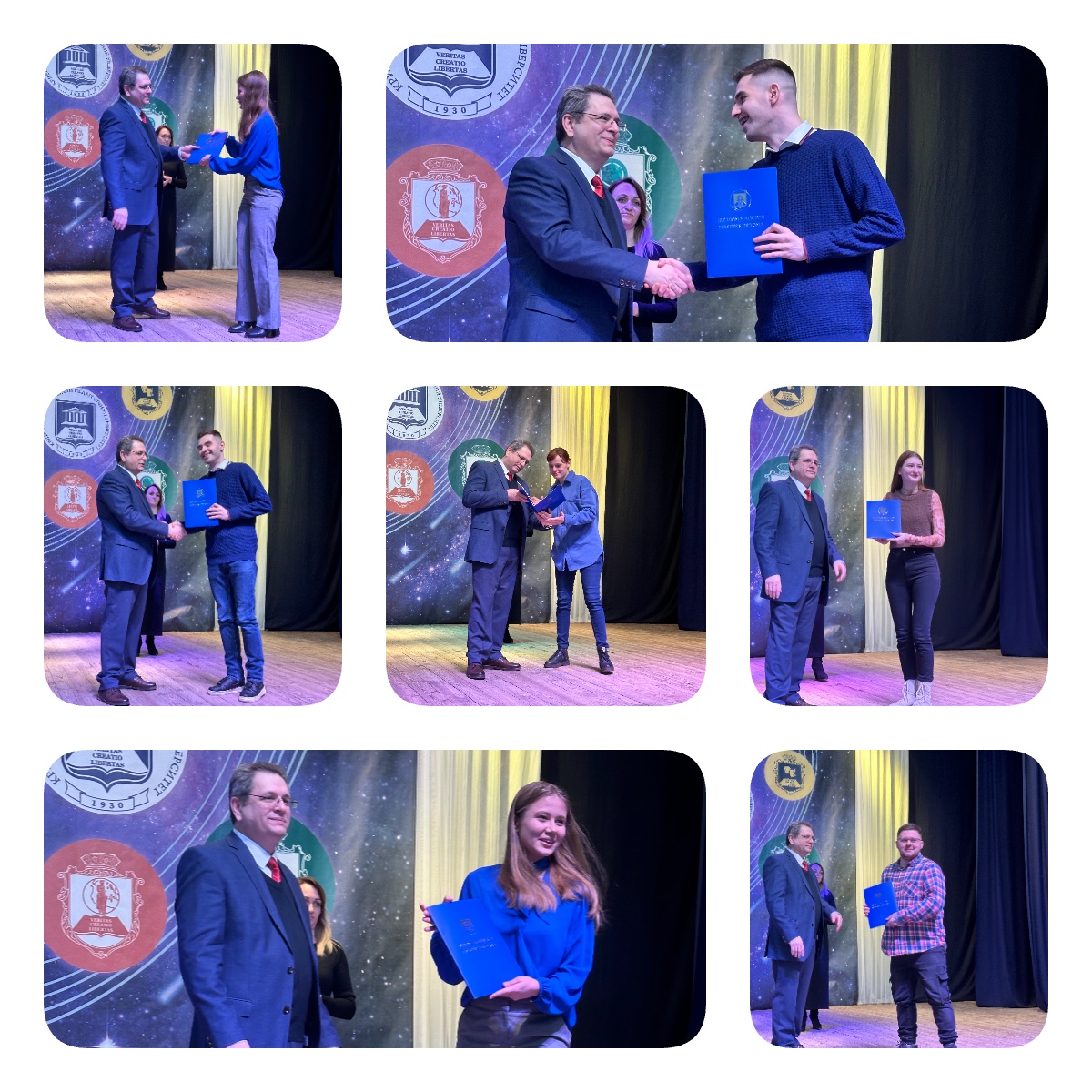
Після урочистого виступу ректора, студенти були запрошені у 308 аудиторію, де вже чекали декан факультету, завідувачі випускових кафедр та куратори академічних груп. Вони всі з радістю вітали молодих випускників з цією важливою подією у їхньому житті. Кожен із присутніх висловлював свої слова підтримки та надії на успішну кар'єру та майбутнє у студентів.
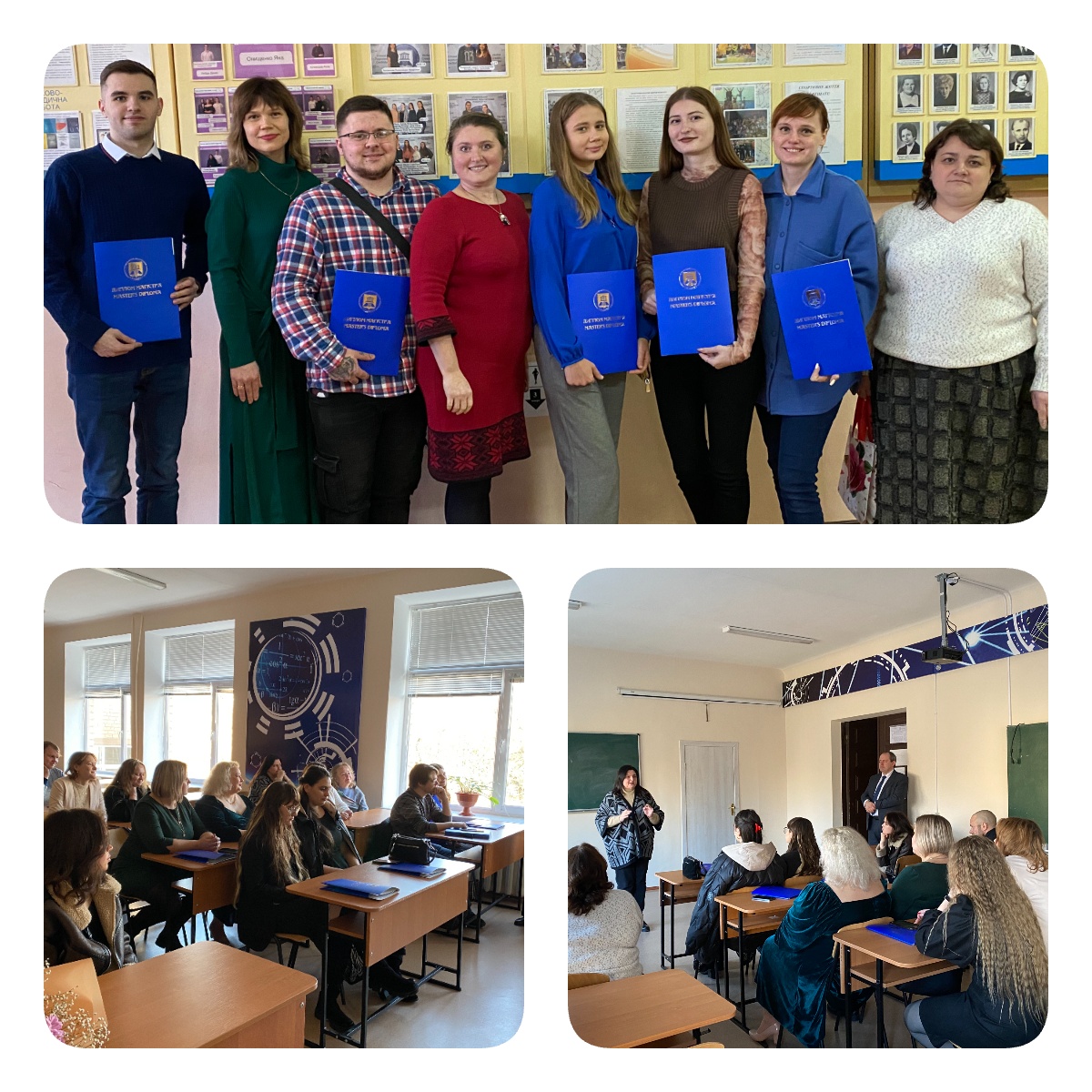
- Автор: Кафедра інформатики та прикладної математики
- Перегляди: 421
16 січня 2024 року на базі Криворізького Центрально-Міського ліцею відбувся міський конкурс «Інфотехнос» І (міський) етап Всеукраїнського конкурсу-захисту науково-дослідницьких робіт учнів-членів МАН України відділення Інформаційних технологій.
14 конкурсантів, учнів 9-11 класів ліцеїв, гімназій, шкіл, закладів позашкільної освіти міста, які займаються дослідницькою діяльністю (КЛ №95, 119, 123, 129, КПНЛ, КТЛ, КЦМЛ) захищали проєкти з комп’ютерної інженерії, кібербезпеки, програмної інженерії, систем та технологій штучного інтелекту, Інтернет-технологій та вебдизайну, навчальних, ігрових програм та віртуальної реальності.

Конкурс передбачав три тури:
- заочне оцінювання науково-дослідницького проєкту;
- постерний захист проєкту;
- наукова конференція.
У склад журі конкурсу ввійшли науковці кафедр інформатики та прикладної математики та фізики та методики її навчання Криворізького державного педагогічного університету: Шокалюк Світлана Вікторівна, Степанюк Олександр Миколайович, Фадєєва Лілія Олександрівна, Моісеєнко Наталя Володимирівна, Хараджян Наталя Анатоліївна та Закарлюка Ірина Станіславівна.

Під час наукової конференції в межах секцій відбулися цікаві й корисні дискусії, щодо перспектив подальшої наукової роботи учасників. Члени журі висловили подяку учасникам за їх захоплення наукою та нездоланну волю до перемоги і побажали успіхів на наступних етапах конкурсу.
- Автор: Кафедра інформатики та прикладної математики
- Перегляди: 410
ЗНАЙОМСТВО ЛІЦЕЇСТІВ З НАВЧАЛЬНИМИ ДИСЦИПЛІНАМИ, НАПРЯМАМИ РОБОТИ ТА НАУКОВИМИ ДОСЛІДЖЕННЯМИ КАФЕДРИ
30 листопада 2023 року відбулася зустріч викладача кафедри інформатики та прикладної математики КДПУ Степанюка Олександра Миколайовича зі школярами 10 класу ліцеїв міста Кривий Ріг. Тема зустрічі – знайомство школярів з навчальними дисциплінами, напрямками роботи та науковими дослідженнями кафедри.
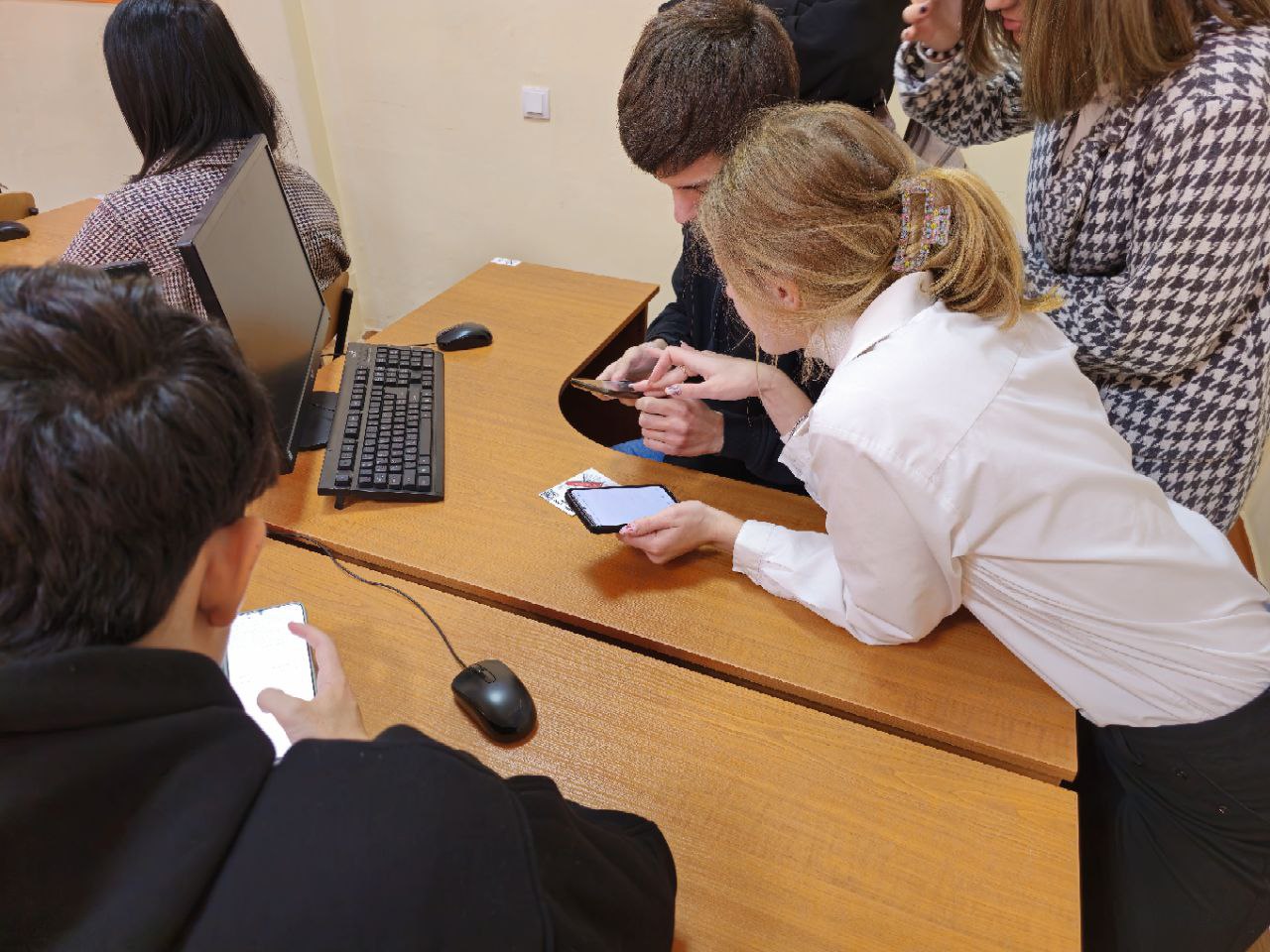
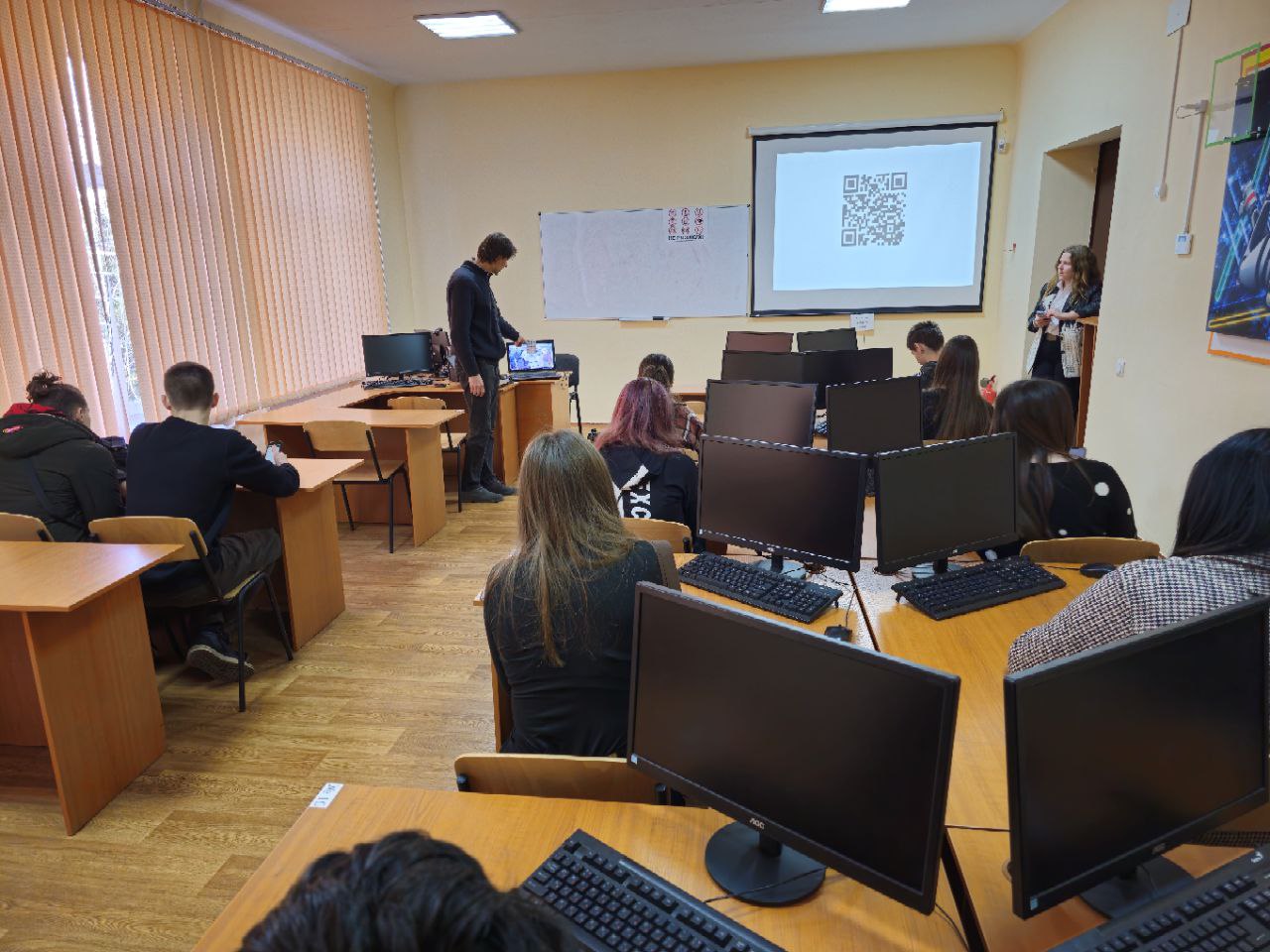
Олександр Миколайович розповів школярам про навчальні дисципліни, напрямки роботи та наукові дослідження кафедри інформатики та прикладної математики КДПУ. Він акцентував увагу на тому, що кафедра активно займається розробкою та впровадженням інноваційних технологій у освіту та науку.
Під час зустрічі школярі мали можливість ознайомитися з результатами наукових досліджень кафедри, зокрема з розробленими додатками для доповненої реальності, моделями складних систем та роботами. Школярі також мали можливість поставити запитання викладачу.
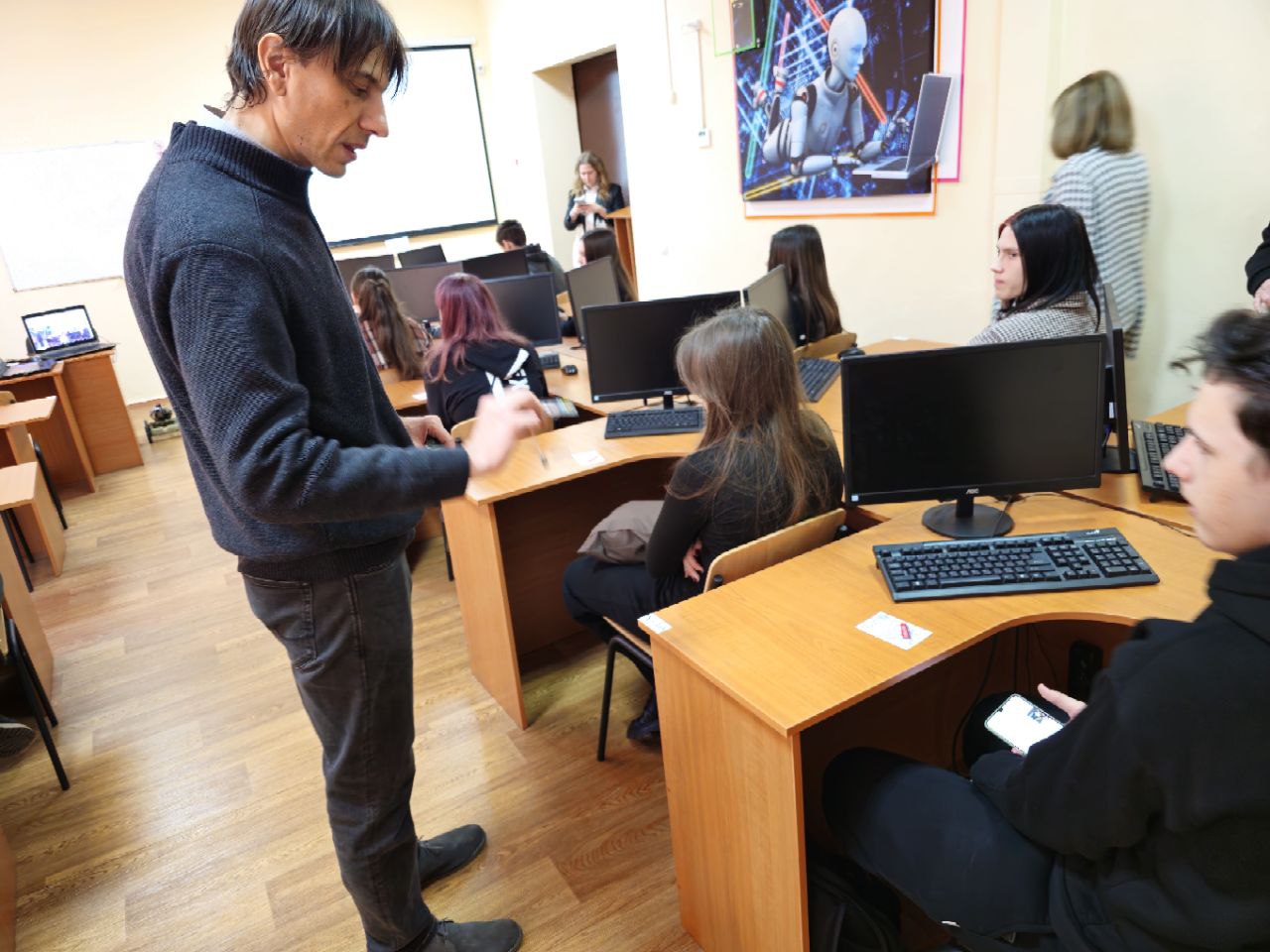
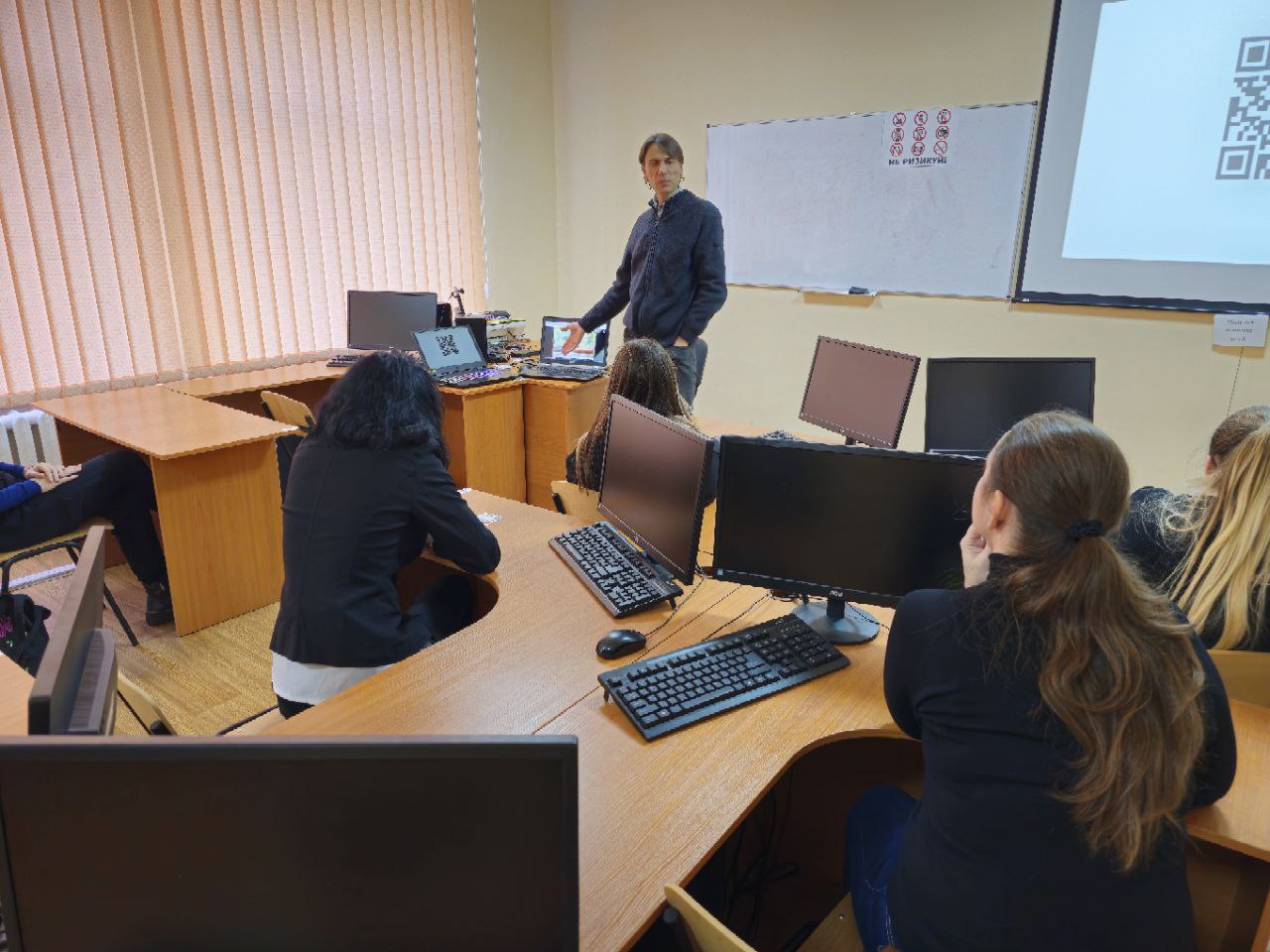
Зустріч пройшла в дружній та інтерактивній атмосфері. Школярі отримали багато цікавої та корисної інформації про напрямки роботи та наукові дослідження кафедри інформатики та прикладної математики КДПУ. Такі зустрічі є важливими для популяризації інформаційних технологій, природничих наук та техніки серед молоді.
- Автор: Кафедра інформатики та прикладної математики
- Перегляди: 435
28 листопада 2023 року відбулося підписання договору про співпрацю Криворізького педагогічного університету з компанією-лідером ІТ-галузі в Україні – ЕРАМ. Укладення партнерства з EPAM відчиняє широкий спектр можливостей для підвищення рівня підготовки молодих та перспективних фахівців в галузі інформаційних технологій. Це не лише шанс приєднатися до освітніх ініціатив EPAM University, а й проведення спільних просвітницьких заходів, залучення експертів до освітнього процесу, розширення можливостей неформальної освіти, організація підвищення кваліфікації викладачів, інтенсифікація науково-дослідницької діяльності в галузі інформаційних технологій, посилення матеріальної бази тощо.

Перший захід у рамках цієї співпраці відбувся в той самий день, коли імплементувалася ця історична угода. Фахівці компанії EPAM підготували змістовний воркшоп для студентів та науково-педагогічних працівників КДПУ.
Вступне слово взяв Іван Міхєєв, координатор освітніх програм ЕРАМ Україна у східному регіоні. У своїй доповіді він детально розповів про проекти EPAM University, такі як: “EPAM TEACHERS INTERNSHIP”, “PRE-JUNIOR ”, “МАРАФОН ІТ-ТЕХНОЛОГІЙ”, “JUNIOR ONLINE PROGRAMS”. До того ж доповідач зазначив, що EPAM University пропонує безкоштовні базові курси з 10 напрямів у форматі самостійного опрацювання. Іван Міхєєв повідомив студентам, що на сайті https://training.epam.ua/ua також можна знайти 15-хвилинний кар’єрний тест, який допоможе визначити сильні сторони і, відповідно, напрям, який відповідатиме навичкам та інтересам.
Воркшоп продовжив Єгор Божок, експерт з навчальних програм EPAM University, із темою “Активний пошук роботи в LinkedIn”. Єгор досить детально зупинився на рівнях заповнення профілю LinkedIn, пояснив як якість заповнення профілю впливає на можливості у пошуку роботи. Не меншу увагу звернув і на фото в профілі, акцентував увагу на тому, що фото – візитна картка в LinkedIn. Надав рекомендації щодо сервісів, які варто використовувати для підбору належного фото.
Останнім спікером був Нікіта Шевців, Senior software engineer в EPAM із доповіддю “Міфи в ІТ сфері”. Нікіта виділив 10 міфів: кодити потрібно цілодобово; програміст проводить усе життя перед комп’ютером; вчитися потрібно по 25 годин на добу; програмістів замінить штучний інтелект; в IT дуже багато математики; усі айтішники замкнуті у собі та взагалі дивнуваті; вища освіта не потрібна; у програмістів повністю сідає зір; айтішник спить вдень і працює вночі; людина, що працює в IT-сфері все життя пише код. Під час спілкування Нікіті вдалося розвіяти розповсюджені міфи, переконати студентів на власному прикладі у тому, що баланс у житті програміста можливий, варто просто виконувати всі завдання у визначені дедлайни.

Студенти та викладачі виявили живий інтерес до лекцій експертів, активно висловлюючи свої думки та ставлячи запитання спікерам.
Висловлюємо щиру подяку компанії EPAM за цей важливий внесок у навчальний процес. Сподіваємося на плідну співпрацю!
- Автор: Кафедра інформатики та прикладної математики
- Перегляди: 516
У п’ятницю, 8 вересня, відбулася друга зустріч кафедри інформатики та прикладної математики з представниками IT-компанії EPAM. З боку EPAM у ній взяв участь Нікіта Шевців, старший інженер з робробки ПЗ. З боку КДПУ у зустрічі взяли НПП кафедри інформатики та ПМ і студенти спеціальності “Середня освіта (Інформатика)”.

На зустрічі спікер з ЕРАМ підняв питання, що стосувалися проблем ІТ-освіти та шляхів їх вирішення. Мова йшла про неактуальні навчальні програми, застарілі методики викладання, відсутність ІТ-спільноти серед студентів, нестачу ІТ-подій, замалу мотивацію студентів. Нікіта наголосив на тому, що команда EPAM Україна з досвіду знає, які потрібні інженери в реальному бізнесі. Саме тому фахівці EPAM University Programs постійно створюють навчальні матеріали для інженерів та безкоштовно поширюють їх серед навчальних закладів України і тих, хто хоче змінити свою спеціальність. Нікіта Шевців наголосив, щоплатформа EPAM University Programs: представляє теоретичний матеріал у різних форматах, надає доступ до бази знань у будь-який час, забезпечує автоматичну перевірка завдань, орієнтує майбутніх фахівців на конкретний напрям, а головне – містить матеріали, що відповідають потребам сучасного ІТ-ринку. Студенти отримали приклади актуальних навчальних програм, які стосуються Frontend та Backend напрямків, серед яких:
- Frontend basics;
- React learning course;
- Angular learning course;
- Java basics;
- Java Streams and Lambdas;
- Java Spring.
Спікер також підкреслив можливість зарахування результатів навчання на платформі EPAM згідно університського положення про неформальну освіту.
Також представники EPAM запропонували в майбутньому зустрітись на екскурсії в офісі EPAM у Дніпрі, проводити онлайн-зустрічі довільного масштабу та офлайн – у закладах вищої освіти.
Подія відбулася у дружній та конструктивній атмосфері. Обидві сторони висловили зацікавленість у подальшому розвитку співпраці між EPAM і Криворізьким державним педагогічним університетом.
Ми висловлюємо подяку представникам компанії EPAM за цю цінну зустріч тавідданість підтримці освіти та розвитку IT-індустрії в Україні.


- Автор: Кафедра інформатики та прикладної математики
- Перегляди: 408
Дане опитування є формою участі здобувачів вищої освіти в системі внутрішнього забезпечення якості вищої освіти та реалізації принципу студентоцентричного навчання. Мета опитування – вивчення рівня задоволеності здобувачів другого (магістерського) рівня вищої освіти якістю освітньої програми «Інформатика. Програмування» галузі знань 01 «Освіта/ Педагогіка», спеціальності 014.09 «Середня освіта (Інформатика)» та освітнього процесу загалом.
Опитування проводилося шляхом online-анкетування анонімно та на добровільних засадах.
При відповіді на запитання "Чи вважаєте Ви доцільним залучати до освітнього процесу професіоналів-практиків, експертів, роботодавців?" Отримані за результатами анкетування дані дають змогу стверджувати, що більшість студентів (75%) вважають залучення фахівців-практиків до викладання необхідною складовою організації освітнього процесу.
В наступному запитанні оцінювалася міра забезпеченості освітніх компонент освітньої програми навчально-методичними матеріалами (підручниками, методичними посібниками, конспектами лекцій тощо) в електронній та друкованій формах. Як вважають 75% опитаних студентів, усі дисципліни освітньої програми в достатній мірі забезпечені навчальнометодичними матеріалами.
Результати аналізу відповідей на запитання "Чи завжди забезпечується об’єктивність і неупередженість екзаменаторів?" свідчать про достатній рівень об’єктивності оцінювання викладачами результатів навчання здобувачів вищої освіти в університеті. Відповіді розділилися порівно – 50% опитуваних відповіли, що усі викладачі оцінюють об’єктивно, 50% – що більшість викладачів оцінюють об’єктивно.
Опитування здобувачів щодо запитання "Чи задовольняє Вас рівень організації та зміст практик?" свідчить про те, що 75% опитаних повністю задоволені організацією проходження практики, 25% студентів зазнвчили, що їм важко відплвісти на поставлене питання.
На запитання "Чи знаєте Ви, де на офіційному сайті університету та в СУЕНК університету розміщено силабуси та робочі програми дисциплін, які будете вивчати протягом семестру?" всі здобувачі вищої освіти (100%) відповіли ствердно.
На запитання "Які рекомендації для покращення освітньої програми Ви можете запропонувати?" 50% респондентів зазначили, що задоволені освітньою програмою та не мають рекомендацій; 25% студентів зазначили про необхідність збільшення можливостей для асинхронного навчання; ще 25% респондентів бажають збільшити кількість занять у офлайн форматі.
Результати опитування здобувачів груп Ім-22 свідчать про досить високий рівень задоволеності різними аспектами навчального процесу.
- Автор: Кафедра інформатики та прикладної математики
- Перегляди: 446
У середу, 20 липня 2023, відбулася перша зустріч представників компанії EPAM, лідера у галузі IT-послуг та консалтингу, та кафедри інформатики та прикладної математики та представників адміністрації Криворізького державного педагогічного університету. Зустріч була присвячена обговоренню можливостей співпраці між EPAM та КДПУ у сфері освіти та розвитку IT-спеціалістів.
З боку EPAM в зустрічі взяли участь Нікіта Шевців, Єгор Божок, Іван Міхєєв та ін. З боку КДПУ в зустрічі взяли участь Ольга Бондаренко, Олена Ганчук, Наталя Моісеєнко, Олена Тарасова, Олександр Степанюк, Михайло Моісеєнко, Галина Алєка, Світлана Шокалюк, Ірина Мінтій, Павло Мерзликін та ін.
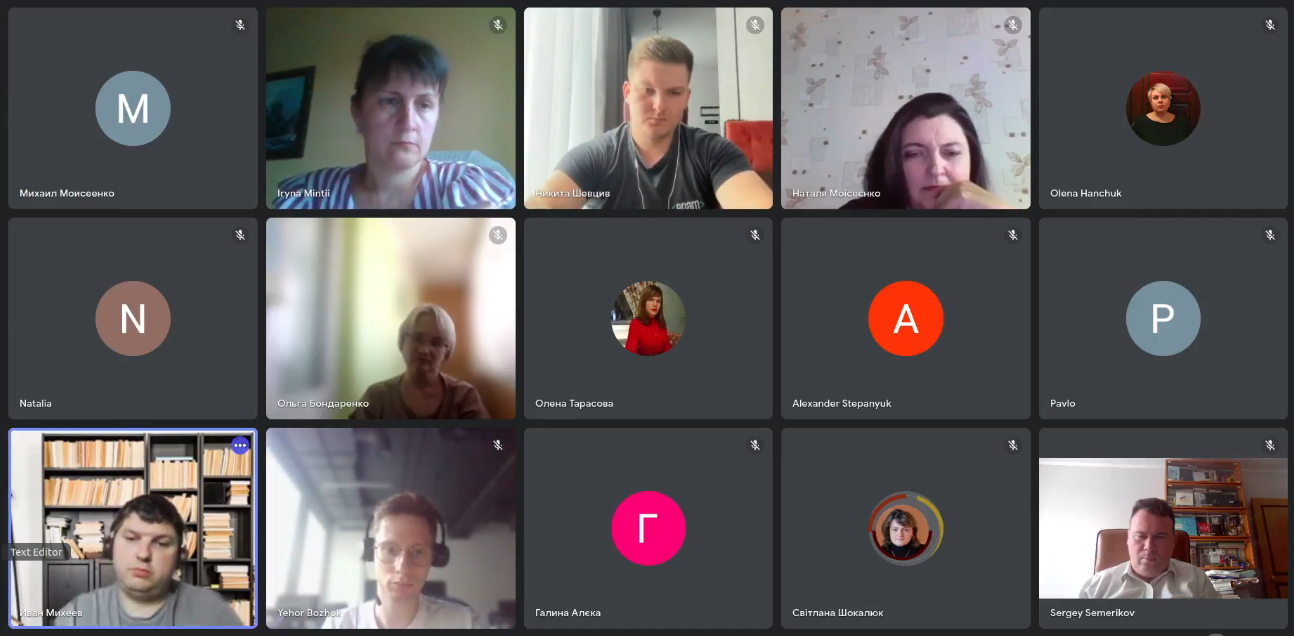
Координатор освітніх програм EPAM Ukraine у східному регіоні Іван Міхєєв розкрив деталі навчальних програм EPAM, спрямованих на розвиток інформаційних технологій та інновацій. Він наголосив на актуальних технологіях та підходах, що допоможуть студентам та викладачам вдосконалити свої знання та навички. Зокрема, було представлено програми EPAM University Program (EUP), яка дозволяє студентам отримати практичні навички розробки програмного забезпечення за сучасними технологіями та методологіями, EPAM Faculty Development Program (FDP), яка спрямована на покращення професійних компетенцій викладачів у галузі IT, а також EPAM eKids Program (eKids), яка має на меті розвивати логічне мислення та креативність дітей за допомогою програмування, робототехніки та дизайну. Підкреслено можливість зарахування результатів навчання на платформі EPAM згідно університського положення про неформальну освіту.
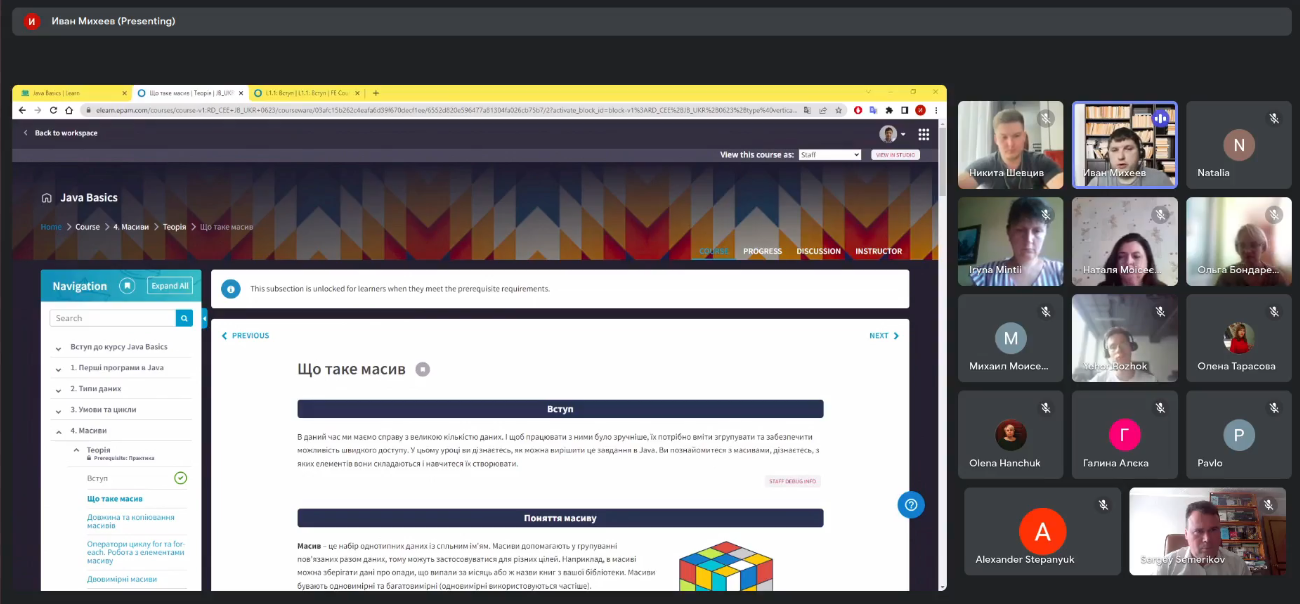
Також було обговорено можливості організації екскурсії до офісу EPAM у м. Дніпро для студентів та викладачів КДПУ (вересень 2023 року), щоб познайомити їх з робочим середовищем та культурою компанії. Представники EPAM запропонували свою експертизу для оцінки та покращення освітньої програми "Інформатика. Програмування" з урахуванням вимог ринку та тенденцій IT-індустрії.
Представники EPAM зазначили, що готові розглянути можливість співпраці зі студентами під час виробничої практики та після отримання освіти. Це дає студентам прекрасну можливість впроваджувати свої знання на практиці та отримувати цінний досвід в роботі з справжніми проектами.
Представники кафедри інформатики та прикладної математики висловили зацікавленість у співпраці з EPAM у сфері вдосконалення освітніх програм, підвищення кваліфікації викладачів, навчальної та виробничої практик студентів ОП "Інформатика. Програмування" і працевлаштування випускників.
Зустріч пройшла у дружній та конструктивній атмосфері. Обидві сторони висловили зацікавленість у налагодженні та розвитку співпраці між EPAM та КДПУ. Було домовлено про подальші кроки щодо реалізації запланованих ініціатив та проектів.
Ми вдячні представникам EPAM за цю цінну зустріч і відданість підтримці освіти та розвитку IT-індустрії в Україні. Ми впевнені, що співпраця між EPAM і кафедрою інформатики та прикладної математики Криворізького державного педагогічного університету буде корисною для обох сторін.
- Автор: cc
- Перегляди: 356
10 червня 2023 р. на фізико-математичному факультеті проводилася державна атестація здобувачів вищої освіти ступеня бакалавр спеціальності 014.09 Середня освіта (Інформатика) денної форми навчання з інформатики та методики її навчання.
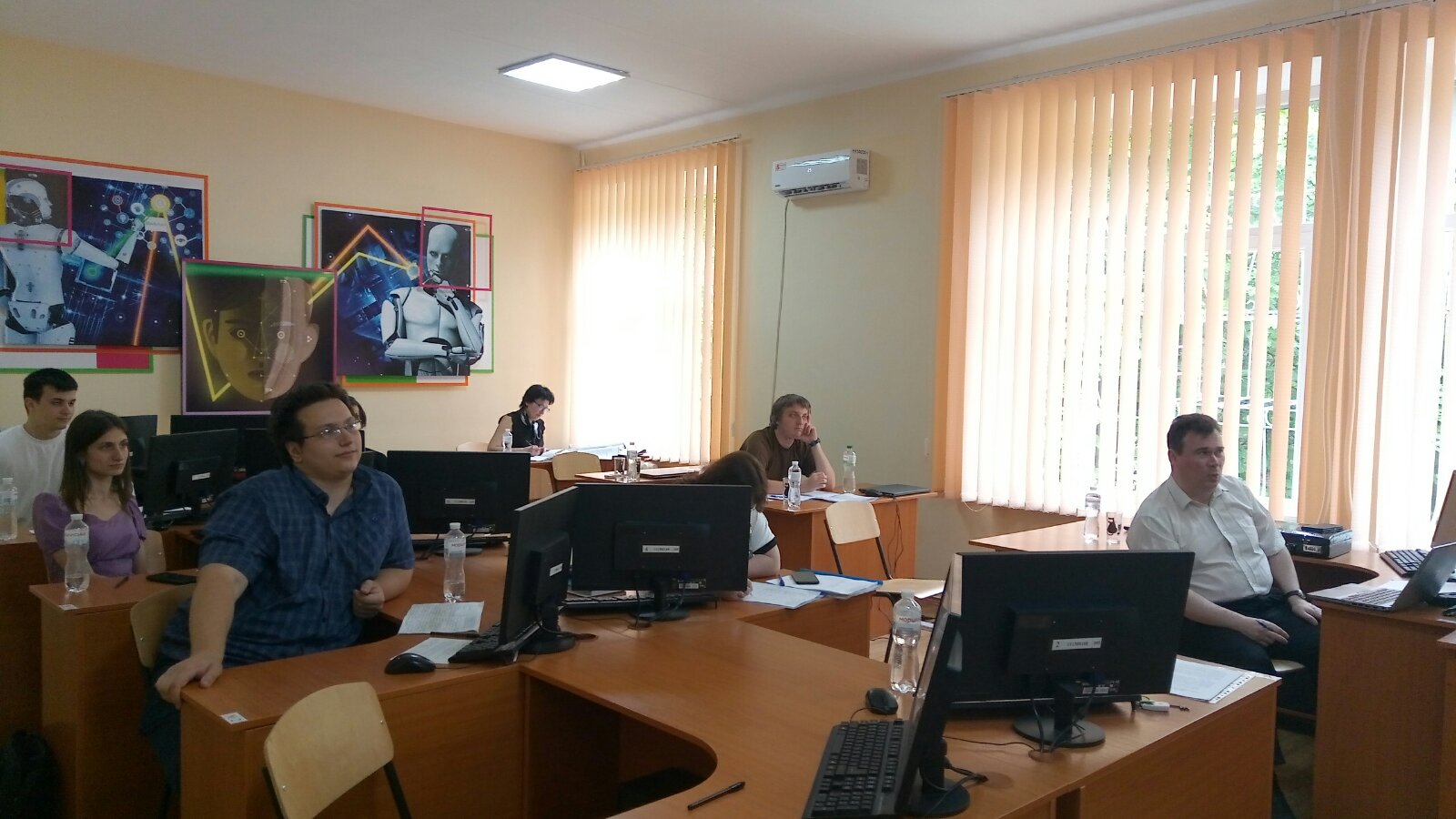
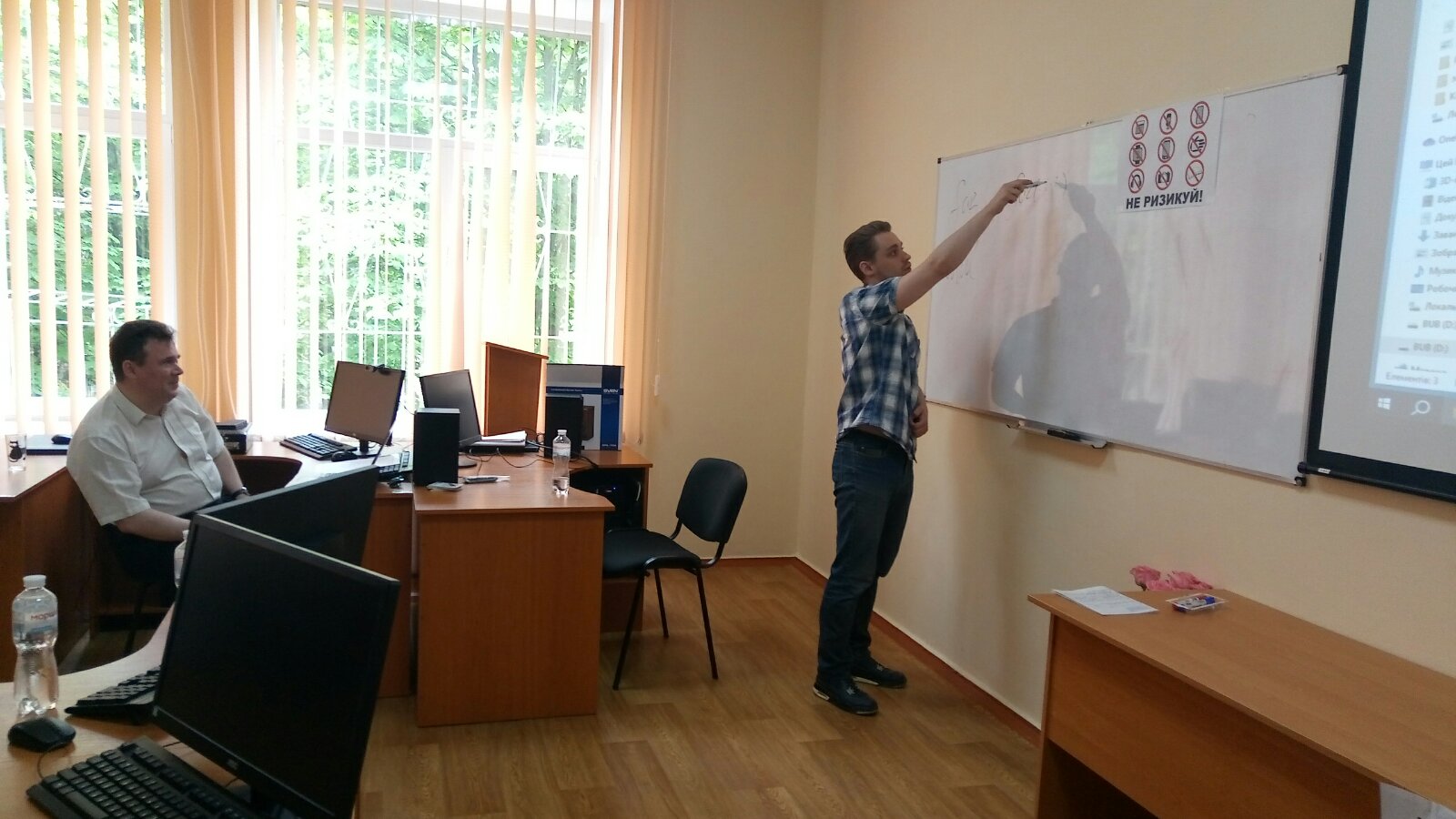
Екзаменаційна комісія під головуванням доктора педагогічних наук, професора кафедри інформатики та прикладної математики Семерікова С. О. засідала із дотриманням усіх необхідних вимог. Керівництвом університету та фізико-математичного факультету було створено всі необхідні умови для забезпечення продуктивної та об’єктивної роботи екзаменаційної комісії.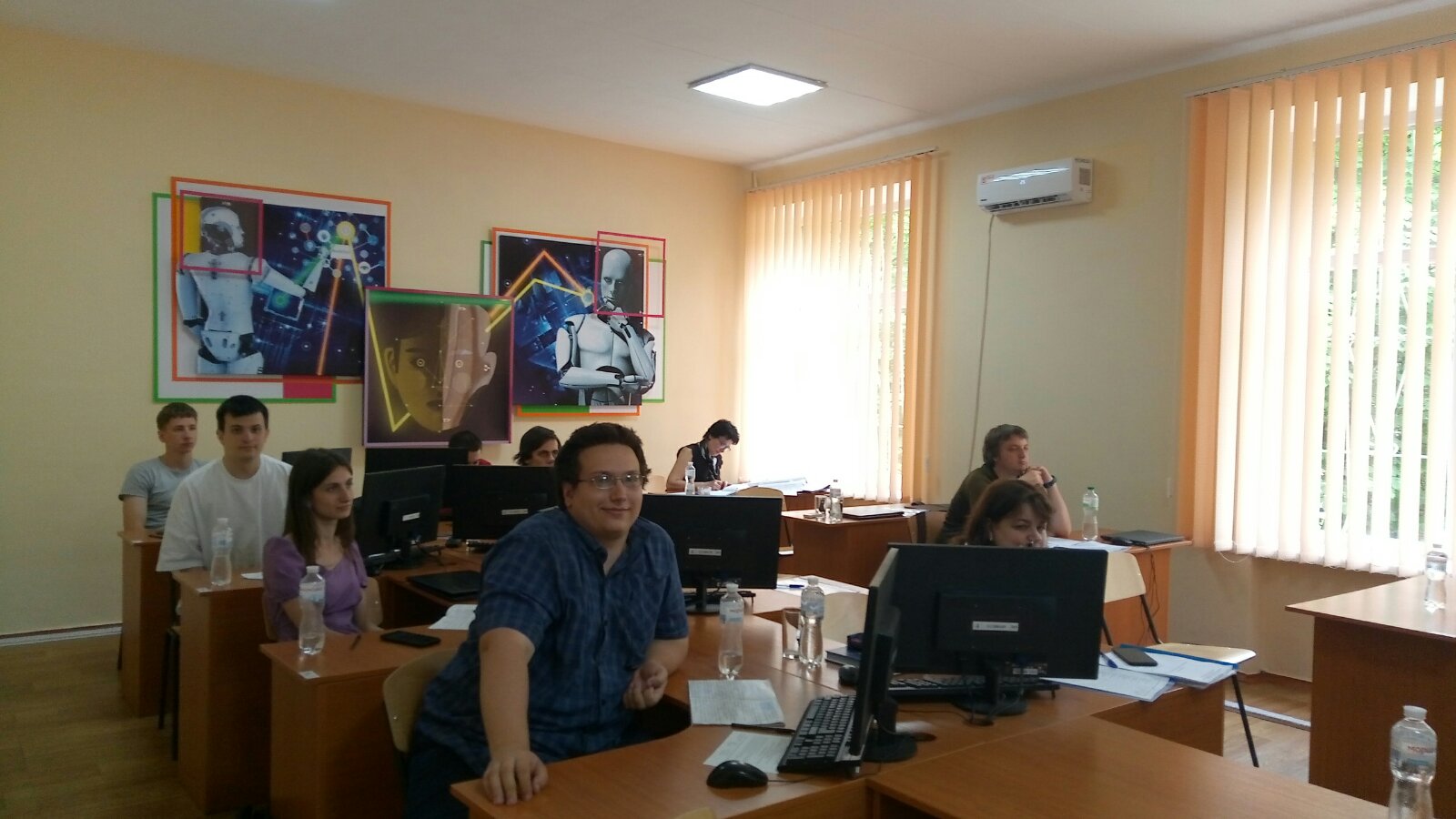
Частина комплексного екзамену, через непередбачену повітряну тривогу, була проведена в укритті. Незважаючи на такі стресові обставини, здобувачі освіти продемонстрували належний рівень теоретичної та методичної підготовки. Відповіді студентів були глибокими та практико-зорієнтованими, ґрунтувалися на їх власному професійному та життєвому досвіді.
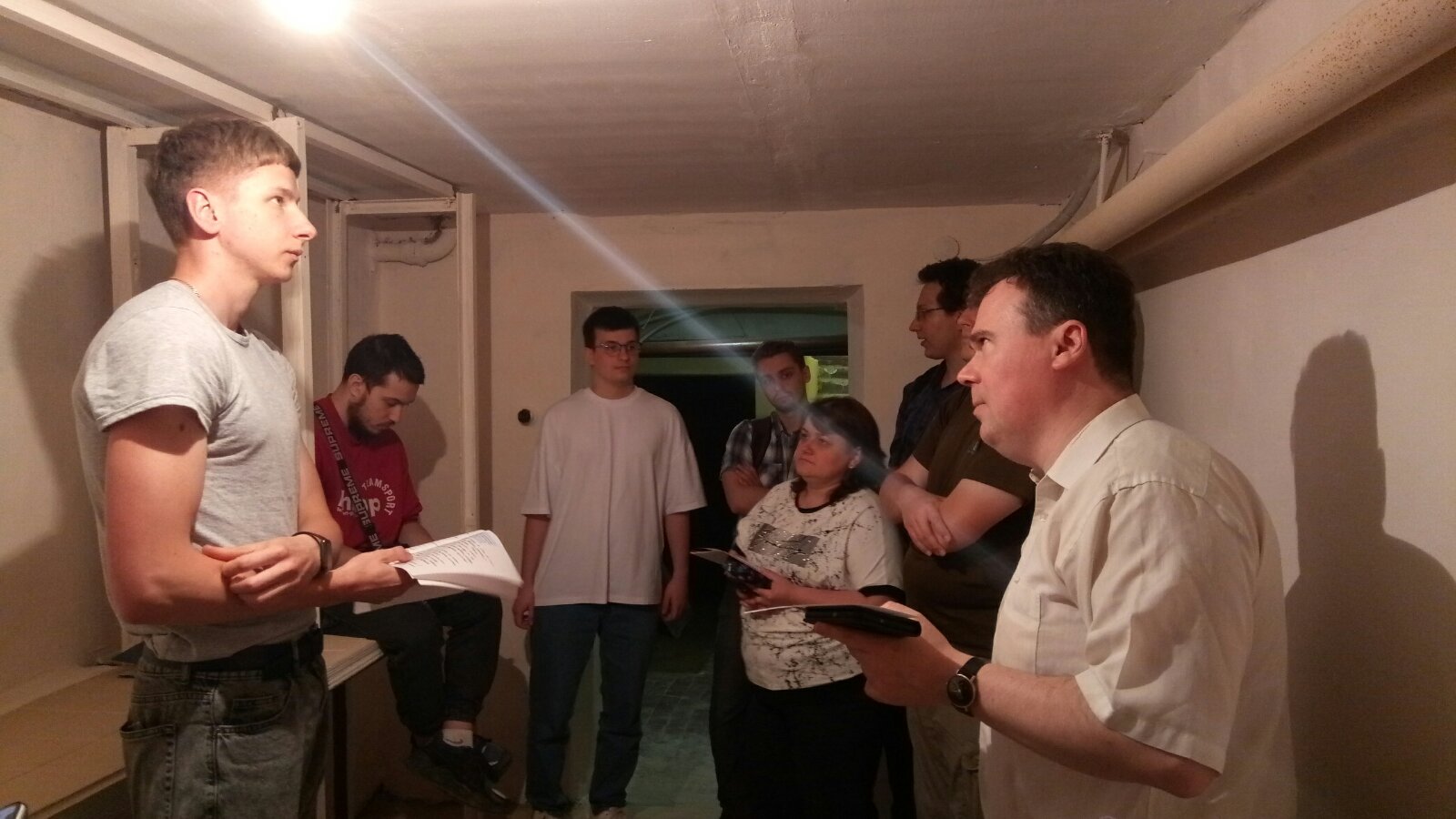
Вітаємо студентів з успішним складанням комплексного екзамену та бажаємо подальших успіхів!
- Автор: Кафедра інформатики та прикладної математики
- Перегляди: 414
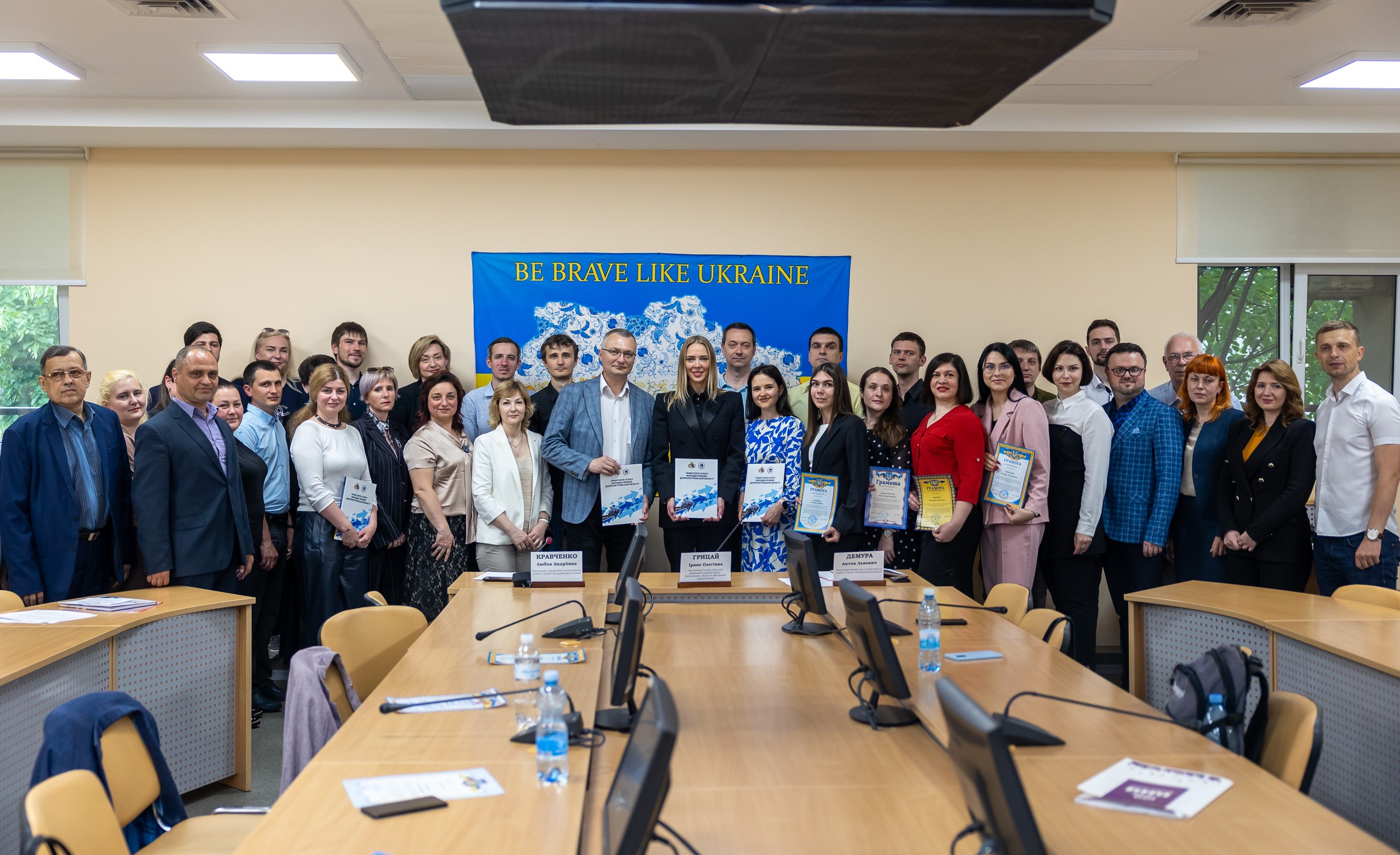
25 травня 2023 року за участі заступника голови обласної державної адміністрації - начальника обласної військової адміністрації Ірини Грицай у приміщенні департаменту освіти і науки облдержадміністрації відбулася урочиста церемонія нагородження науково-педагогічних працівників з нагоди відзначення Дня науки. Відзначили більш ніж 20 кращих науковців регіону. Серед них - доцент кафедри інформатики та прикладної математики, кандидат фізико-математичних наук, Мерзликін Павло Володимирович та старший викладач кафедри інформатики та прикладної математики, доктор філософії (PhD), Іванова Галина Ігорівна.
- Автор: Кафедра інформатики та прикладної математики
- Перегляди: 247







